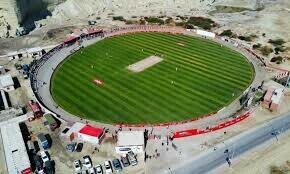Entering the spring meeting of the Association of Physicians of Pakistani Descent of North America (APPNA) is a bit like walking into a desi wedding in the middle of Philadelphia.

A line of models accompanied by a loud man in a shiny gold shirt rushes by. A clothing rack of designer wear follows, as the women prep for a fashion show that will take place later that night.
Noisy children running around and creating a ruckus are admonished briefly by their mothers, who then continue chattering excitedly with each other.
Men clad in sherwanis and suits are walking in and out of meeting rooms, coordinating with each other for the event, and a television crew is setting up for a video interview with APPNA members.
A bazaar for Pakistan clothes and jewellery, a lassi stand and a rural scene where a lady sits dressed like a villager but texting away on her cellphone, are among the sights at the APPNA convention.
APPNA, a not-for-profit organisation established in 1977, is one of the largest organised bodies of Pakistani-American medical professionals in the United States (US) and Canada.


The body seeks to work with the Pakistani-American community in the US for civic engagement and image building of the Pakistani community among fellow citizens, along with community service projects in Pakistan and other parts of the world. APPNA also plays a special role supporting physicians from Pakistan who go to the US to further their studies or find work.
APPNA President Dr Sajid Chaudhary terms it the third largest medical association in the US, after the American Medical Association and the Association of Physicians of India (API), with over 3,000-3,500 members.
The organisation holds three quarterly meetings in the spring, fall and winter, and an annual convention in summer which is attended by around 4,000-5,000 people of Pakistani descent, according to Dr Babar Cheema, chairman of the body's civic engagement committee.
APPNA meetings, however, are not just a forum for discussion on the organisation's activities.
"They have also become a centre for socialisation," Dr Cheema says, where people can "recharge their desi battery".
Before APPNA existed, an alumni association from Lahore's King Edward Medical University ─ one of the oldest medical institutes in Pakistan ─ had been established for medical professionals.
However, when doctors from other medical schools began coming to the US, "they decided that they should have a bigger umbrella organisation," Dr Chaudhary says.
Serving their two homes: Pakistan and the United States

This organisation has adopted what Dr Chaudhary describes as a "two-pronged strategy". Through alumni groups, APPNA focuses on projects in Pakistan, and through its local chapters also works with US-based communities.
The organisation also plays a big role in supporting Pakistani physicians who wish to go to the US for further education or work. They support them by providing mentorship lectures and programmes, seminars, scholarships and financial support. They also run 'APPNA Houses' that provide Pakistan med students with a place to live at subsidised rates.
“When I moved to the US [in 1996] we did not have any arrangements like this. We were on our own. At least now when young physicians come from Pakistan, they know where they’re going to be staying and have good support structures,” Dr Cheema says.
In addition to initiatives to support Pakistani physicians, APPNA also engages in disaster relief work in the country.
Dr Aisha Zafar, chair of APPNA's social welfare and disaster relief committee, says the body has been involved in relief efforts in the aftermath of the massive earthquakes in Pakistan, Haiti, Indonesia and Nepal.

APPNA members are also encouraged to engage in community service in the US such as running food pantries, soup kitchens and free local clinics.
American physicians of Pakistani descent also provide primary and specialty care to Americans, especially in rural areas and inner cities in the US, where many US-born physicians prefer not to practice.
"We are hoping that we will push more people into this [community service]… so they can pay back to the US. Quite frankly, this is our adopted homeland. America has given us so much that we have no complaint. Even when we have President Trump and all the current rhetoric at this point, I have to admit I feel more comfortable being in America than being in my own land of birth, Pakistan," Dr Cheema says.

Persisting despite rising Islamophobia
However, Dr Chaudhary notes that the Pakistani community in the US has been "a little bit down" after the recent election amid a documented rise in Islamophobia.
"They have a fear of dire conditions, consequences, backlash, because of the recent change in the political scenario,” he says, emphasising the importance of reaching out to US lawmakers and lobbying for the rights of the desi community in America.
“We need to get involved with our local legislators, we need to raise our concerns," he says.
This active engagement at a local level is apparent even at the APPNA's spring meeting. US Senator Bob Casey is one of the speakers at the event. Valerie Biden Owens, a women's rights activist and sister of Former US Vice President Joe Biden, is a keynote speaker.
The physicians believe that such efforts are particularly important right now when fears of travel bans are still prevalent.
“This is a big concern for us because we have scholarships, we are supporting these students… [but] if the visas are not issued despite the fact that they have excellent scores, we will not be able to continue a programme like this,” Dr Zafar says.
“This is the first time, really, that I’ve sensed it. We had delays in terms of visa issues but it wasn’t to the extent where now there is a concern that you will not be hired or interviewed because you are of Pakistani background," she explains.
“We need to get out and tell American citizens, our fellow citizens, that we are a part of them and we want to work for them.”













































